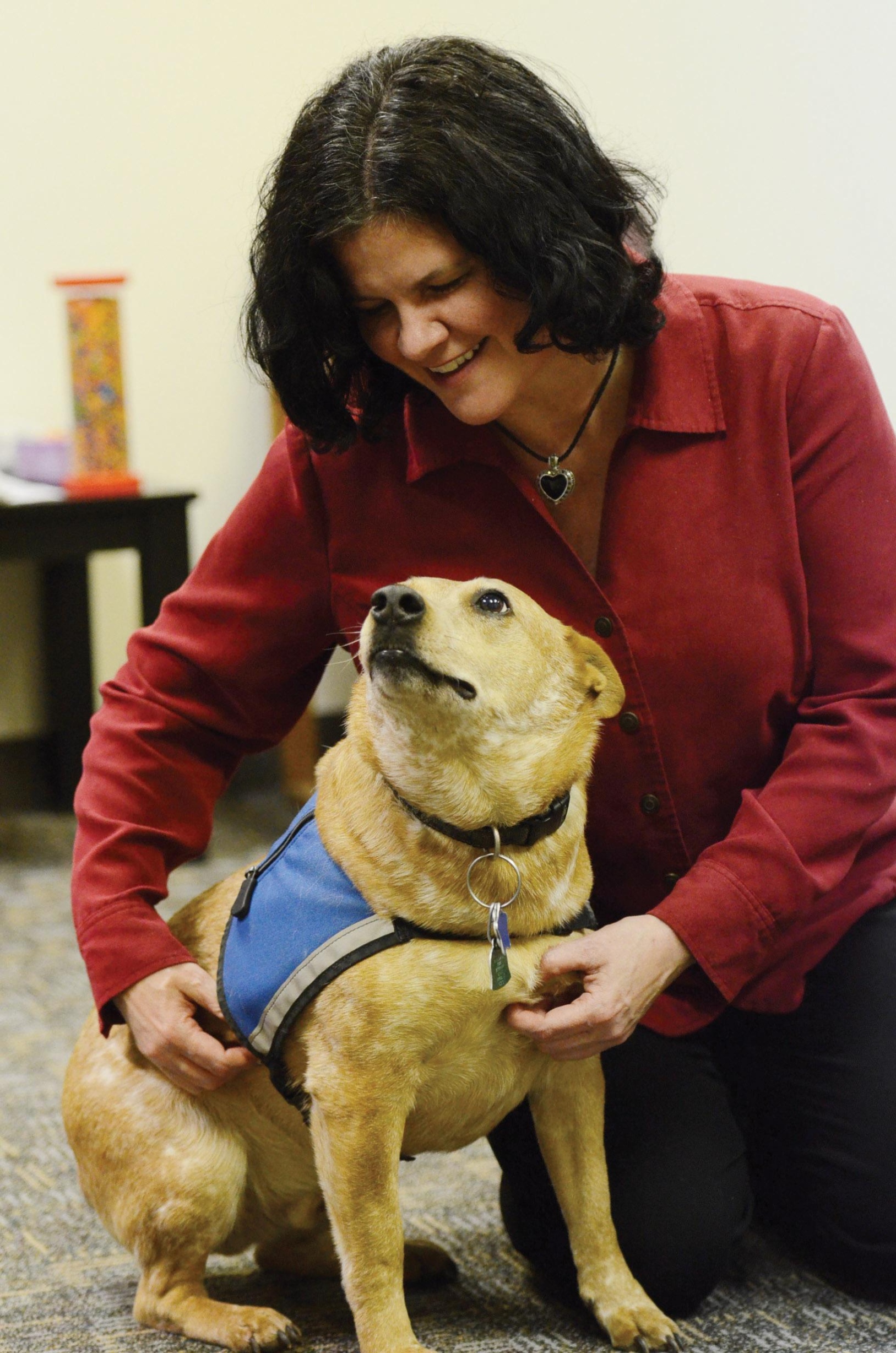Pets trained to ‘open doors’ for students
Alternative forms of therapy are gaining popularity all over the world, and USU is no exception.
Counseling and Psychological Services at USU focuses on helping students “achieve (their) personal, relational, and academic goals while at USU” by offering a range of psychological services by taking a “holistic approach” to counseling.
One such service is having a therapy dog present during a counseling session. The CAPS office has two fully trained and certified therapy dogs, Remy and Boris, who are able to help with a variety of issues.
“Remy helps to break down the stigma of counseling. People are more willing to ask about our services when I’m out walking him rather than when I am out by myself,” said LuAnn Helms, assistant director and psychologist at the CAPS center.
The use of therapy dogs was established at USU in 1997 by an intern and the then-director of the center, Mary Doty, and has been around ever since. However, many students still do not know about this opportunity.
“Petting dogs makes you feel so much better,” said Adrianna Haws, an undeclared freshman. “They have the ability to help in a non-verbal way, which is great.”
The path to becoming a therapy dog is not easy one. The dogs must complete an obedience class and be up to date on their shots. Their handlers must have signed a “no bite” statement, and the dogs must go through the “K9 Good Citizen” certification every year.
Despite the many tests, the therapy dogs at CAPS made it.
“Remy is really great for patients when they are talking about stressful topics,” said Helms, Remy’s handler and owner. “It’s helpful for them to take a break and pet him. It calms them down so that they can continue talking. He’s also helpful as a conversation starter and ice breaker during sessions.”
Remy is a 6-year-old red heeler who has been working in the center as a therapy dog for the majority of his life.
Aside from his weekly Friday visits to the office, Remy also helps out in group counseling and workshops when it is appropriate and visits on-campus events when his presence might be useful.
“It’s been really neat to work with the dogs,” said Karen Caronna, a member of the CAPS staff. “Groups of students will just drop by the office to see them. It helps students to connect to home and comforts them when they are missing their pets.”
Boris, the other therapy dog at the CAPS center, is owned and handled by Eri Bentley, a psychologist at the center. She does not have regular times that she visits the office, but arrangements can be made with her handler if her services are requested.
“(The dogs) open up the door for people to ask about our services and (they) help us to get to know students around campus,” Helms said.
The CAPS center has a wide variety of counselors and workshops that deal with a myriad of different issues. Students can drop by their office in TSC 306 for information on Assisted Animal Therapy and workshops available.
– katie.whitmore@aggiemail.usu.edu

